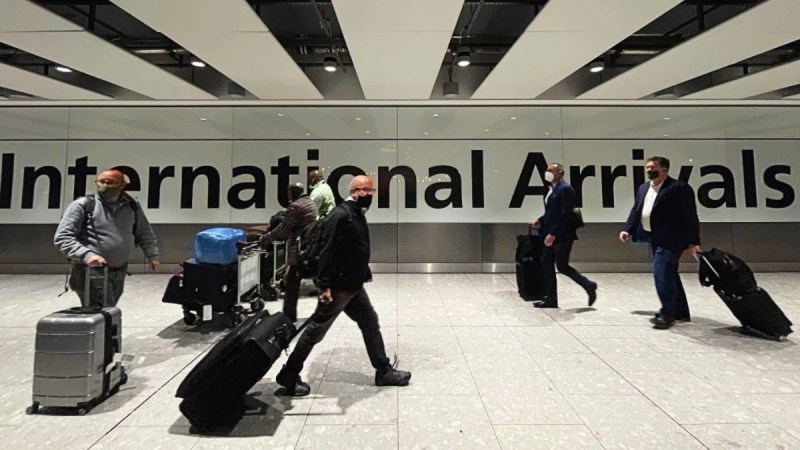
With most of the world back open for leisure travel, the aviation industry is breathing a collective sigh of relief as travellers eagerly pack their bags and jet off on new adventures.
Many airlines are reporting a return to financial viability, if not outright profitability, after a period of being strapped for cash.
In a dramatic reversal of its fortunes, this week, Qantas revealed it was back in the black for the first time since the COVID-19 pandemic.
Similarly, Virgin Australia, which was nearly torpedoed by the pandemic in 2020, made a profit margin on its 2023 first-half value. The company seems to be in good stead for a possible IPO (offering its shares to the public) later this year.
Rex Airlines is doing good business too. The airline recently announced it would expand its fleet after reporting four consecutive profitable months since operations resumed in February 2022.

There’s been s steady rise in the number of arrivals since the pandemic. Photo: Getty
Aussie consumers will undoubtedly benefit from enhanced capacity, and there’s good news for airlines, too, as the return of tourists and foreign students will only add momentum to growth.
The International Civil Aviation Organisation expects passenger demand to recover to pre-COVID levels on most routes this quarter and then to about 3 per cent higher than 2019 levels by year-end.
Australia opened its borders fully to international travel in February 2022 after being closed for almost two years. It was a pivotal moment for the industry, and it opened up opportunities for tourism experts and travel enthusiasts alike.
More than 19 million arrivals and departures were recorded throughout the year, the ABS said last week.
While total arrivals for 2022 were just 45 per cent of 2019 levels, monthly figures showed the recovery building through the year, ABS head of migration statistics Jenny Dobak said.
Total arrivals in December 2022 reached 1.3 million, compared with less than 300,000 in January 2022.
Tourism experts tell the The New Daily that much of the demand is driven by families reuniting with loved ones after the pandemic, and by people holidaying abroad after being cooped up at home.
The return of foreign carriers and the extra capacity they bring to the market has also enabled people to travel to and from Australia.
Earlier this week Flight Centre’s chief executive Graham Turner said leisure and corporate spending is at “post-COVID highs” in an “improved, but not fully recovered, trading environment”.
“We are not currently seeing evidence that the recovery is slowing with the leisure business currently trading at post-COVID highs and corporate travel activity escalating after the traditional holiday period,” Mr Turner said.
His comments came as the company reported it narrowed its statutory pre-tax loss to $18.3 million, down from the $276.1 million loss announced a year earlier.
It seems that the pandemic has made people appreciate the joys of travel more than ever, with experts saying people are eager to explore new places, meet new people and try new things.
Ivona Siniarska, a travel industry expert for 1000 Mile Travel Group, told TND that consumer confidence was returning.
“People are definitely travelling, we’re seeing people booking more and more proactively in advance,” she said.
“People are feeling more confident about making a booking or about actually being able to get on an aircraft. They feel like they get to go somewhere rather than worrying about changes, cancellations, or border restrictions.”
While the return of international travel has been a welcome change for the industry, some experts warn that the recovery could be slowed by a soft landing or full-blown recession as central banks increase interest rates amid inflationary pressure.
Professor Rico Merkert, chair in transport and supply chain management at the University of Sydney told TND that this was particularly relevant in Australia, where rising interest rates will affect those with mortgages as they come out of fixed loans.
Property investors may also pass on these interest rates to renters, reducing their disposable income for travel.
Additionally, companies will feel the effects of higher interest rates and inflation and may cut back on corporate travel budgets.
“These headwinds are compounded by geopolitical uncertainty and the volatility of jet fuel prices,” Professor Merkert said.
But overall, he thought the aviation and tourism industries should feel “positive” that international travel was on the up.
“Airlines are still ramping up traffic and I think things should be fully back online by June, with carriers from the Middle East, but in particular, Chinese carriers ramping up capacity in and out of Australia.”
